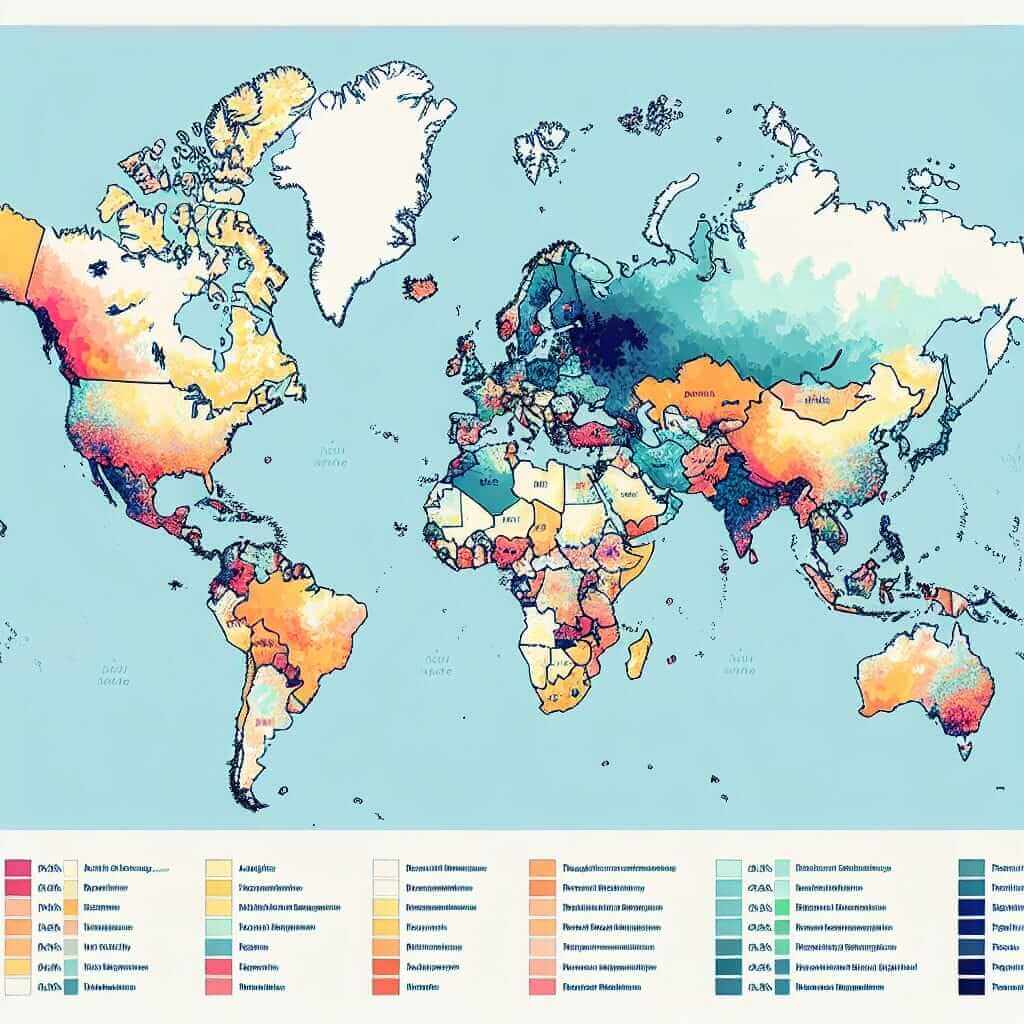The Reading section in the IELTS exam is designed to assess a candidate’s reading comprehension skills through various text types and questions. It’s essential to understand the nature of different topics that may appear in this section. One such topic that has gained prominence recently is “How does the rise of populism influence global politics?” This topic’s relevance in global discourse makes it a likely candidate for reading passages in future IELTS exams.
Populism has seen a dramatic rise in recent years, with movements and leaders emerging across different parts of the world. Understanding its influence on global politics provides a comprehensive context for students aiming to improve their reading skills in English.
Main Content
Sample Reading Passage on Populism’s Influence on Global Politics (Medium Text)
Populism is a political approach that strives to appeal to ordinary people who feel that their concerns are disregarded by established elite groups. In recent years, the world has witnessed a significant rise in populist leaders and movements, which has led to substantial changes in global politics.
Prominent examples include the election of leaders like Donald Trump in the United States, Jair Bolsonaro in Brazil, and the Brexit movement in the United Kingdom. These leaders and movements often emphasize nationalist sentiments, critique globalization, and advocate for policies that are perceived to be in direct opposition to the interests of the global elite.

One major impact of the rise of populism is its influence on international relations. Populist leaders often adopt a protectionist approach to trade, arguing that international agreements disadvantage their nation’s economy. This stance can lead to increased tariffs, reduced trade cooperation, and even trade wars, which can strain relationships between countries.
Additionally, the rise of populism is linked to a shift in global governance. Populist governments tend to be skeptical of international organizations and agreements, such as the United Nations or the Paris Climate Accord. They argue that such bodies infringe on national sovereignty and prefer to implement policies that prioritize immediate national interests over long-term global strategies.
Moreover, populism can affect domestic politics by undermining democratic institutions. Populist leaders often employ rhetoric that criticizes the media, judiciary, and other checks on governmental power, which can erode public trust in these essential institutions. This trend has been observed in several countries, where populist leaders have sought to consolidate power and weaken opposition.
The rise of populism also has significant implications for immigration policies. Populist rhetoric tends to focus on strict immigration controls, arguing that such measures protect national identity and security. This perspective often leads to more stringent immigration laws and policies, which can impact global migration patterns and international relations.
In conclusion, the rise of populism is a complex and multifaceted phenomenon that influences global politics through its impact on international relations, governance, democratic institutions, and immigration policies. As this trend continues to evolve, it is crucial to understand its implications and how it shapes the political landscape.
Sample Questions
Multiple Choice
-
What is a common characteristic of populist leaders mentioned in the text?
A. Support for globalization
B. Advocacy for nationalist policies
C. Increased immigration
D. Support for international organizations -
How has populism affected international trade according to the text?
A. By increasing trade cooperation
B. By promoting free trade agreements
C. By leading to more protectionist policies
D. By reducing international tariffs
True/False/Not Given
- Populist leaders universally support the Paris Climate Accord.
- Populism always leads to weaker opposition from political parties.
Matching Information
Match the following populist leaders with their respective countries:
- Donald Trump
- Jair Bolsonaro
- Brexit Movement
Answer Keys & Explanations
Multiple Choice
- B – Advocacy for nationalist policies is a common characteristic shared by populist leaders.
- C – Populism has led to more protectionist policies, as evidenced by increased tariffs and reduced trade cooperation.
True/False/Not Given
- False – The text states that populist governments tend to be skeptical of international agreements like the Paris Climate Accord.
- Not Given – There isn\’t enough information in the text to affirm this statement unequivocally.
Matching Information
- Donald Trump – United States
- Jair Bolsonaro – Brazil
- Brexit Movement – United Kingdom
Common Mistakes When Answering the Types of Questions Above
- Misinterpretation of text: Students often misinterpret the intentions behind certain statements, especially in multiple-choice questions. It\’s crucial to read the text carefully and understand the context.
- Overlooking key phrases: In True/False/Not Given questions, missing key phrases can lead to incorrect answers. Always look for specific information in the text.
- Mismatched information: When matching information, ensure that every piece of information correlates with the text’s context.
Vocabulary in the Passage
- Populism (noun): /ˈpɒpjəlɪzəm/ – Political approach emphasizing ordinary people\’s concerns.
- Protectionist (adjective): /prəˈtekʃənɪst/ – Economic policy of restricting imports to protect domestic industries.
- Sovereignty (noun): /ˈsɒvrənti/ – Supreme power or authority over a territory.
- Rhetoric (noun): /ˈretərɪk/ – Effective or persuasive speaking or writing.
Grammar Points to Focus
- Relative Clauses: Used to provide additional information about the noun (e.g., “Populist leaders who criticize the media often…”).
- Passive Voice: Useful for emphasizing actions rather than who performed them (e.g., “International agreements are often criticized…”).
- Conditional Sentences: Highlight hypothetical situations and their possible outcomes (e.g., “If a country adopts protectionist policies, it may face trade wars.”).
Conclusion
To excel in the IELTS Reading section, practice is vital. Regularly engage with diverse topics, including current global phenomena like populism. By expanding your comprehension skills and familiarizing yourself with potential exam formats, you enhance your ability to navigate the Reading section confidently.
Remember, understanding the context, paying close attention to details, and honing your reading skills will prepare you effectively for the IELTS Reading section. Happy reading and good luck with your preparation!